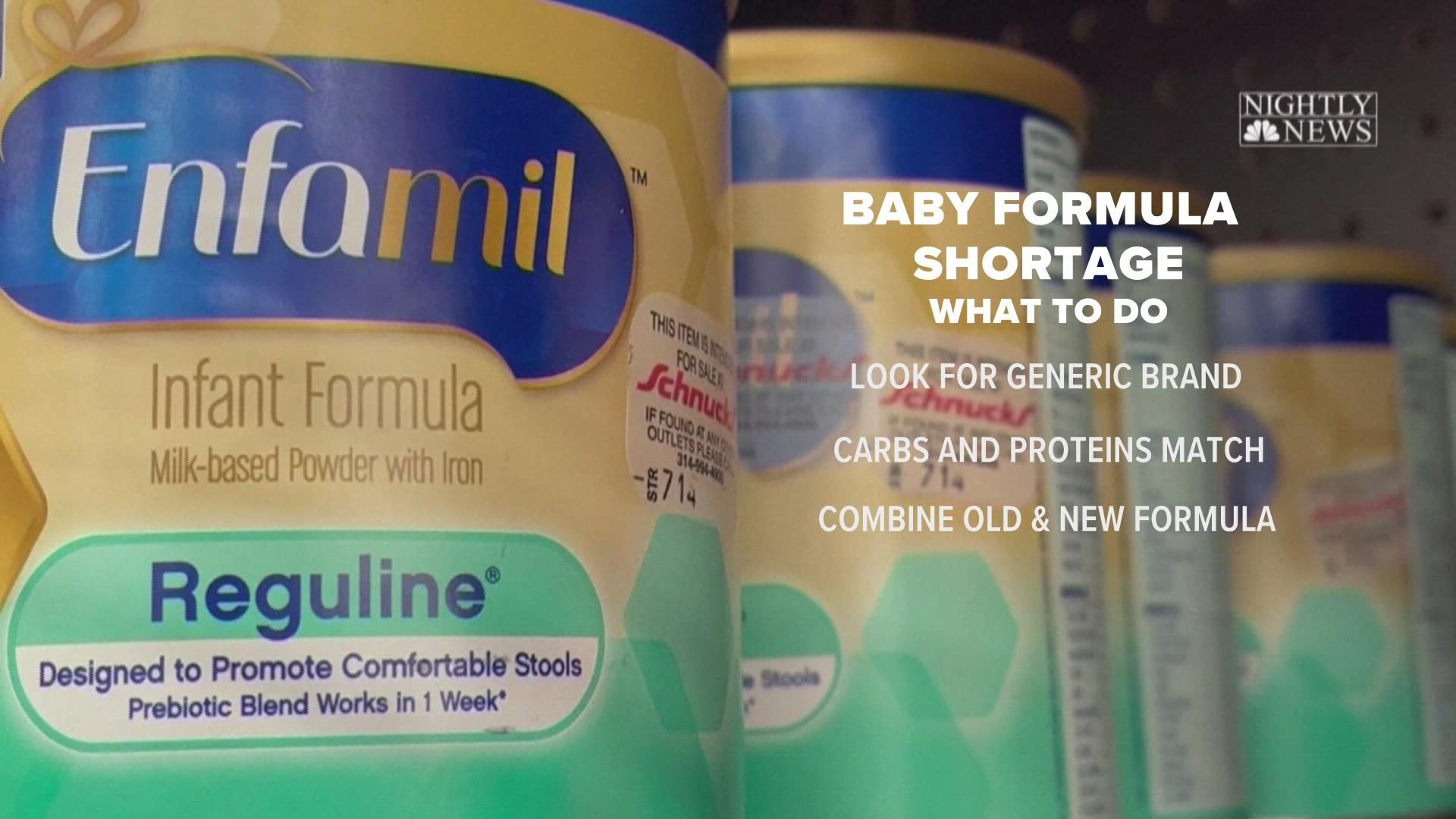DENVER — The United States is dealing with a nationwide shortage of baby formula. According to data company Datasembly, 40% of America's baby formula supplies are out of stock. That's up from 29% in March.
While recalls have made quite an impact, experts say a supply shortage is also to blame. 9NEWS spoke to Laura-Anne Cleveland, the associate chief nursing officer at Rocky Mountain Hospital for Children, to figure out what parents should and shouldn't do if they are struggling to find their baby's formula in stock.
Here's what Cleveland had to say.
DO's
Go with a generic formula
"I think the number one thing is, know it’s OK to do generic. I think especially when you come from a hospital and you know there’s a certain formula that works for your child, many of us hear that stomach issues can occur when you change formulas, so it can be scary and daunting. But there are a lot of formulas out there that have essentially the same makeup and components."
Match proteins and carbs in a new formula
"Parents really want to look at the back [of the formula can]. The back is going to tell you your carbohydrate level, your protein level – and that’s what they want to see to establish what is the right formula for their children. They can work with their pediatrician, but if you compare the formula you have now and the one that is a generic form or any of the other brands, really look at the carbohydrates and protein. Everything else is less important. That’s the part that you need to make sure you’re getting the right nutrition."
Supplement your supply with samples
"If you are going to change formulas, it’s OK that you do and they might have a little upset stomach, which is OK. The best way to limit that is to combine them if you have enough of the old formula [with the new formula]. You add a little bit of each one in and you slowly build into the new formula so that’s the majority of what’s in the bottle, they tend to do better with it. Know that that first 24-48 hours is typically when their stomach is typically taking some time to adjust, but it doesn’t mean that it’s the wrong formula for them. It just means their body’s adjusting."
Switch to whole milk or another type of milk once they’re 12 months old
"Cow’s milk is great but that’s really when you want to be transitioning to when they’re about 12 months old and again the doctor can help you with when that’s the right time. You really don’t want to do that early. Their stomach and their intestine can’t digest it that way that it should, so it really can cause some problems and it’s not giving them the whole picture of nutrients that they need at that time."
DON’Ts
Use Homemade Formula
"I think there’s a big drive on if we should start making our own formula; that’s really dangerous to do. We have trained specialists who go to school for this; that is not the best way to do it. Even though there’s recipes out there, there’s no guarantee that you’re getting your child what they need."
Dilute Formula
"Don’t dilute formula. I think there’s a drive to extend the life of a can of formula. If you dilute it, it’s the same idea, your child is not getting the nutrients that they need."
Use Online Marketplaces
"Don’t go on places like [an online] marketplace to buy them. Number one, I can’t say it with certainty, but I’m sure people are not going to be ethical with how much they’re selling them for. But the most important thing, if you don’t know how that formula is been stored, you don’t know if it's been opened before. You don’t know if anything’s been added to it, so it’s really important that you buy from reputable places."
Giving Toddler Formula to Babies
"There are toddler formulas to help toddlers that are really needing maybe more nutrition – those are great, but again, that is made specifically for toddlers and not for an infant."
SUGGESTED VIDEOS: Latest from 9NEWS

